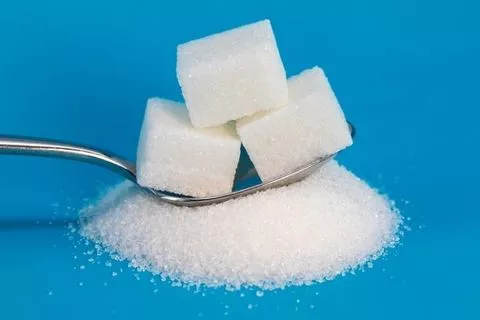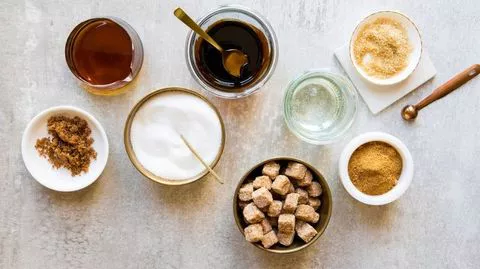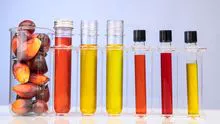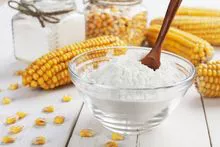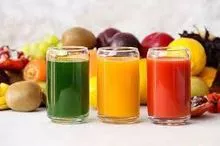Description
Sweeteners are ingredients used to impart sweetness to food and beverages. They range from natural to artificial options, each offering unique benefits in terms of taste, caloric content, and functional properties. Sweeteners are essential in various industries, including confectionery, baking, beverages, and processed foods.
Benefits of Sweeteners:
Enhanced Taste: Provides desirable sweetness, improving the flavor profile of products.
Caloric Control: Low-calorie and non-caloric options help reduce overall calorie intake.
Versatile Applications: Suitable for a wide range of food and beverage products.
Sugar Alternatives: Offers options for those with dietary restrictions or health concerns.
Functional Properties: Some sweeteners also provide additional benefits like moisture retention and texture improvement.
Types of Sweeteners:
Natural Sweeteners:
Examples: Honey, Maple Syrup, Agave Nectar, Stevia, Monk Fruit
Applications: Beverages, baked goods, sauces, dressings
Benefits: Natural origin, some offer additional nutrients and antioxidants
Artificial Sweeteners:
Examples: Aspartame, Sucralose, Saccharin, Acesulfame K
Applications: Diet beverages, sugar-free snacks, desserts
Benefits: Zero or low-calorie content, intense sweetness
Sugar Alcohols:
Examples: Xylitol, Sorbitol, Erythritol, Maltitol
Applications: Sugar-free candies, chewing gum, baked goods
Benefits: Lower calorie content than sugar, dental health benefits
Novel Sweeteners:
Examples: Allulose, Tagatose
Applications: Beverages, frozen desserts, baking
Benefits: Low-calorie, similar taste and texture to sugar
High-Intensity Sweeteners:
Examples: Steviol Glycosides, Luo Han Guo (Monk Fruit Extract)
Applications: Beverages, tabletop sweeteners, processed foods
Benefits: High sweetness intensity, natural origin, low or zero calories
Application Guidelines:
Beverages:
Method: Dissolve sweeteners in water or liquid base; adjust concentration for desired sweetness.
Dosage: Follow product-specific guidelines for optimal sweetness without aftertaste.
Baked Goods:
Method: Blend sweeteners with dry ingredients; adjust moisture content as some sweeteners can affect texture.
Dosage: Use a combination of sweeteners to achieve a balanced taste and texture.
Confectionery:
Method: Incorporate sweeteners during the cooking or processing stage to ensure even distribution.
Dosage: Experiment with different sweeteners to achieve the desired sweetness and mouthfeel.
Sauces and Dressings:
Method: Mix sweeteners thoroughly into liquid bases; adjust acidity to balance sweetness.
Dosage: Use sparingly to enhance flavor without overpowering other ingredients.
Safety Considerations:
Quality: Choose high-quality sweeteners from reputable suppliers to ensure purity and safety.
Regulations: Adhere to local and international regulations regarding the use of sweeteners in food products.
Dosage: Follow recommended usage levels to avoid potential side effects and ensure optimal flavor.
Storage: Store sweeteners in a cool, dry place, away from moisture and direct sunlight. Keep containers tightly sealed.
Allergies and Sensitivities: Clearly label products containing artificial sweeteners or sugar alcohols, as some individuals may have sensitivities or allergies.
- Sweeteners
- Sweeteners in bulk
Production Capacity:
10000
Delivery Timeframe:
Within 30 Days
Incoterms:
CFR - Cost and Freight
CIF - Cost, Insurance and Freight
Packaging Details:
Not informed
More about
Page Global Consultants
10-50
Employees
2M - 10M
Sales volume (USD)
90%
% Export sales
Year
Established
Business type
- Industry / Manufacturer
- Importer / Trading Company
- Representative / Agent
- Distributor / Wholesaler
Keywords
- Nuts
- Grains
- Meat
- Animal Feed
- Grains
- Oil
- Soybeans
- Corn
- Feed
- Fertilizer Ver Mais
Contact and location
-
MABUNGU ********
-
+27 7********
-
GQEBERHA / EASTERN CAPE | South Africa







